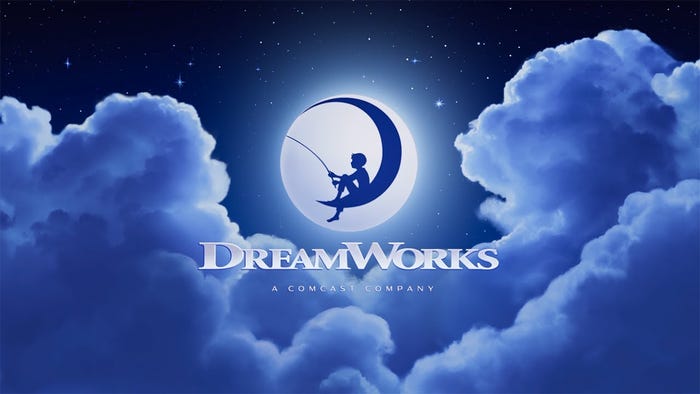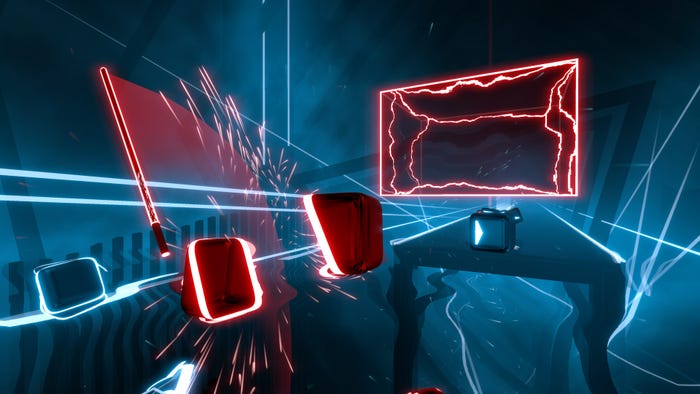
Featured Blog | This community-written post highlights the best of what the game industry has to offer. Read more like it on the Game Developer Blogs.
Confidence: Virtue or Vice for Game Designers?
How can one involved in the creative aspects of game design achieve a balance between the confidence required to find employment and make one's voice heard and the self-criticality and honest reflection required to improve as an artist?

Introduction
This past weekend I attended the PAX East showcase at the Massachusetts Convention Center in Boston. While the majority of attendees were there to have fun, hang out with like-minded gamers, and check out some of the newest games on or coming to the market, I, as a composer and writer looking to make headway in the game industry, spent the vast majority of my time darting from panel to panel to learn as much as I could. Being a musician, I used to regularly attend the NEMO conference (held annually in the Boston area) in my youth, so I was under no illusion about how much value those panels actually tend to wind up yielding. As I attended panel after panel—some good, some bad—I was struck most by two overarching observations: (1) that every panelist (that is, at least every panelist worth listening too) brimmed with confidence (or at least appeared to brim with confidence) that he or she had everything there was to know about the industry figured out; and (2) that it would have been a piece of cake for me to serve on one of those panels with some fake credentials and spout generic advice that would have been taken seriously and never questioned.
"We have Matthew Waldron, president and founder of Fake Games, Inc., here to speak to you about how to get into the game industry," they would have said. I would have proceeded to tell everyone to "get out there and take the initiative to make a game" and to "persevere by working on and thinking about games all the time" and that "if I see a typo on a resume I just throw it in the trash, so make sure your resume is perfectly clean." They would have eaten it up. I would have had people ask me questions afterwards, I would have made something up off the top of my head, and soon enough I'd be getting a business card and a hand shake and a "thank you so much for your insights!"
It is astonishingly easy to unwittingly give credence to someone who presents himself or herself confidently. The assumption that confidence equals clout is used all too often as a substitute for making a thoughtful and educated assessment of what someone has said and deciding if he or she is someone who actually knows what he or she is talking about, or if he or she is simply good at BS-ing (the latter makes up the vast majority of people involved in almost any industry in my experience). In the business world, it is nearly universally true that those who consistently present with that awful ubiquitous, arrogant confidence that pervades our society have no right to be so high on themselves. Chances are those people got where they are because of money, connections, or a talent for shoveling BS (which they shoveled at an HR representative, himself a BS-er, who ate it up). Because the game industry is by nature more focused on creative products and entertainment than are the 'suit and tie' businesses, the aforementioned trend is certainly less prevalent—but it is far from absent. And this unfortunate reality creates a very difficult situation for those involved in the creative aspects of games, because good artists tend to be those people who are in touch enough with reality to have doubts about themselves and their work.
Distinguishing Legitimate Confidence from Illegitimate Confidence
Here is what confidence really ought to be: you work hard to develop a skill for a long time, and eventually become so effective with that skill that your ability to employ it with effectiveness and consistency becomes second nature. As a result, you present to others as confident with respect to that skill, not because you're trying to present confidently, but simply because you're presenting yourself honestly, and in truth you are extremely capable. However, confidence in this form exists quite sparsely in reality. More often than not, people observe the characteristics of those 'legitimately confident' individuals and mimic them on a premise that roughly equates to 'if I can successfully fool everyone, I won't have to put in the work'. As a result the world winds up with multiple variations on 'illegitimate confidence' that one could codify and classify into subgenres such as 'false confidence' (which relates to a person who at least knows deep down that he is full of it) and 'naive confidence' (which relates to a person who has actually convinced himself that he is as great as he presents to be, despite overwhelming evidence to the contrary).
It is a sad fact that being illegitimately confident will generally get one quite far in life, at least insomuch as one measures one's worth by his ability to obtain money, materials and status. I have several friends who think far more highly of their abilities than is deserved who have done tremendously well in business. I've listened as a well-esteemed investment adviser in a lofty position at a nationally recognized investment firm gave me a lecture on how Craps is a game of hot and cold streaks (he stared at me dumbfounded as I tried in vain to explain how probability actually works). When I worked at an investment advisory compliance firm, I watched lawyers misinterpret the law for what I could best classify as an inability to read, while billion dollar hedge fund managers sent communications that would make a middle school student blush. As long as a person can be just a hair smarter than completely stupid, he'll do just fine making money with a little bit of illegitimate confidence in his corner.
Creativity and Confidence: Rare Cohabitants
True confidence, as described above—the natural offspring of the mastery of a skill; an ends and never a means—manifests readily with respect to perfunctory or otherwise easily-definable skills the quality of which can be objectively measured with ease. For example, a waiter will eventually get very good at balancing a trays worth of dishware with a little practice, and so will eventually exhibit confidence in carrying out this task (we can measure the appropriateness of this confidence by how often he shatters a tray's worth of dishware). With respect to creative arts, however, there is no easily definable 'good' or 'bad', and even when we do manage to figure out some of the criteria for measuring quality, there is no hard ceiling to define perfection, viz., you'll never write a perfect piece of music, create a perfect character, design the perfect graphic—there is always room for improvement in the arts. Therefore, in many respects it is extremely difficult to ever be confident when it comes to artistic endeavors.
Every good artist I know became good by being extremely self-critical. In fact, it is probably that mentality of self-awareness that drives artists (in the true sense of the word) to become artists in the first place. As a composer I am never fully satisfied with anything I write, and very rarely am I satisfied at all—in part because I judge the quality of music not relative to competition but on an absolute basis; the quality of a piece is intrinsic to the piece and its application. I am certain this mentality is the same for artists in every other medium as well. Sometimes I can listen to something I wrote years ago that I have long since left behind and discover that it was a pretty solid piece with some cool concepts behind it; but during the creation process my mentality is always: how can this be better? how can this be more effective?. Aside from a few outliers, this is the way artists think; and it this way of thinking that creates a serious problem when it comes to being confident about one's art.
The Dilemma
Here is the conflict for artists looking for work in the game industry: people in charge of hiring, generally speaking, want to see someone who is confident in his work. Artist are generally, by nature, not confident in their work because they are aware that their work, no matter how good it is, could be so much better. Adopting a significant illegitimate confidence as an artist is pretty much the death knell for one's craft: the moment one becomes confident in his art he also become content, and contentment pretty much ends the quest for improvement. Yet often times presenting with that air of confidence is the only way to get hired. So is the solution to fake confidence in those situations and just know the truth yourself? That's certainly what I have done in the business world many times over, because there is really nothing of substance being affected by such deception. But the game industry is a difficult mix between art and business—a game is a collective work that comes together through the collaboration of many different artists and many individuals focusing on the business aspects as well. I personally have a very hard time being deceptive about what I can bring to the table when I know that I could have a negative impact on a piece of art that so many other people have invested their time and effort in.
If I'm being considered as a composer for a project and I'm asked 'are you experience in writing techno?' there are two replies I could give. One is 'Yes! [it's not like the interviewer can prove otherwise or has the musical acuity to determine otherwise] I have a library of beats and sounds I like for techno [lie: I'll just yank a few out of a program on the spot] and for production you just concentrate a lot on panning and make sure to add a sub-bass and boost the bass fundamental at 60Hz in the EQ [true, but I'm just throwing out buzz words that I know the interviewer isn't going to follow so he moves on thinking 'this guy knows his stuff']'. The other, far more honest answer is 'I understand the principals behind techno, but I don't have a ton of experience with it and it isn't something I would cite as a strength'. The first answer is far more likely to get me hired than the latter; yet the latter is considerate of my effect on the overall creative work and takes into account the fact that other artists will be working hard on this game and deserve to collaborate with someone who can make the best end product. If they need someone really good at writing techno, I'm thrilled to give it my best effort if they want to hire me, but if they can find someone who is a techno wiz, that person is probably a better choice. On the other hand, they might end up hiring someone less competent than me for the job who just happened to choose option #1 from the answer choices above.
As you can tell from the equivocation in the previous paragraph, I haven't really settled on an appropriate course with respect to this dilemma. I tend to be honest, because that is what my moral compass tells me to do. Sometimes it works out for the best, other times I look at the result and wonder if it would have served me and everyone else better had I just lied and gotten in the door. So at this point I open the debate up to the reader. Can great artistry and confidence coexist? Does confidence definitionally put an end to artistic improvement? Are there circumstances under which an artist is best to feign confidence for the sake of getting hired, or should the artist be honest in consideration of the other artists working on the project? Should an artist, nay, a person simply be honest regardless of the circumstances? These are serious philosophical questions I find myself considering quite regularly as an artist in the game industry; I'm very interested to hear what people think on this topic.
Read more about:
Featured BlogsAbout the Author(s)
You May Also Like













